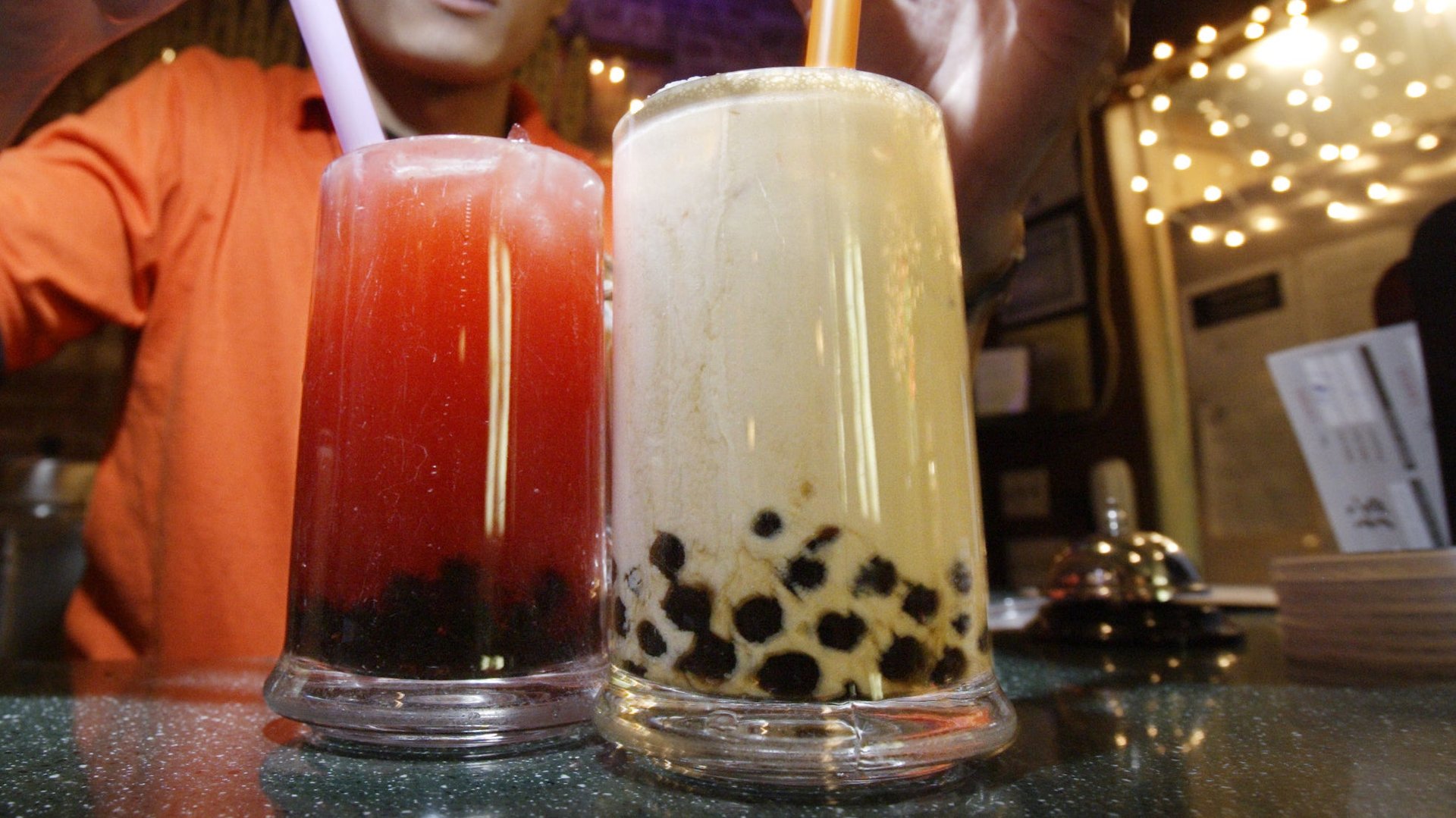If your bubble tea is tainted, don’t blame China—it’s Taiwan’s fault
Shuanghui’s bid for Smithfield has whipped Americans into a frenzy about food hailing from China. But perhaps more worrisome is Taiwan’s most popular export: bubble tea.


Shuanghui’s bid for Smithfield has whipped Americans into a frenzy about food hailing from China. But perhaps more worrisome is Taiwan’s most popular export: bubble tea.
Taiwan’s health authorities have seized more than 300 tons of tapioca starch—the stuff used to make those chewy little pellets or “pearls” in bubble tea—tainted with maleic acid from 11 companies. Maleic acid contamination, which has been found to cause kidney damage, is likely to hurt Taiwan’s domestic bubble tea industry, which is worth about $3.3 billion—not to mention a world full of bubble drinkers.
Bubble tea is now sold in around 30 countries around the globe—Egypt just opened its first bubble tea shop—and the ingredients typically come from Taiwan. It’s unclear how long the contamination has been around, but Singapore and Malaysia aren’t taking chances. Both have halted imports from the 11 Taiwanese companies.
In the US, the Food and Drug Administration hasn’t yet requested any information from Taiwan on the issue, and US supermarkets seem unaware of the scare, according to the China Post.
The FDA didn’t respond in 2011, either, when Taiwanese authorities discovered that several local companies had been using a toxic plasticizer to make bubble tea syrup and powder. Stores in the Bay Area, which is ripe with Asian grocery stores, ended up pulling products from 290 Taiwanese companies after consumer learned of the scandal. “I thought this kind of thing happened only in China—I didn’t realize that Taiwan has this problem as well,” (link in Chinese) said a Silicon Valley entrepreneur named Gong Hangxian.
The timing is bad for Taiwan’s image and its economy, particularly as it strives to differentiate its products from those of its northern neighbor. “Bubble tea is Taiwan’s culinary treasure… We want to rival Starbucks,” Jacky Wang, CEO of Possmei International Co. Ltd, told Taiwan Review in 2011, boasting that bubble tea is “the only drink that people can chew.” The 2011 scare resulted in a slew of countries suspending imports of certain goods from Taiwan. Estimates put losses to the Taiwan beverage industry at around $500 million.
“The [2011 bubble tea] crisis is a huge blow not only for Taiwan’s bubble tea, but also for the food and drink industry as a whole,” Wang said at the time.
The trouble doesn’t end there. Last August, German scientists found potentially carcinogenic substances (pdf) in bubble tea ingredients, most of which had been imported from Taiwan, reported Der Spiegel. The pearls contain “all sorts of crap,” said Manfred Möller, the lead scientist. Though a Taiwanese manufacturer disputed the claim, the news was enough to prompt sellers in Hong Kong to pull certain products (paywall).
Taiwan is now upgrading its food safety law (it took health authorities two weeks to announce the maleic acid contamination). Let’s hope it’s enough to save the only drink you can chew.